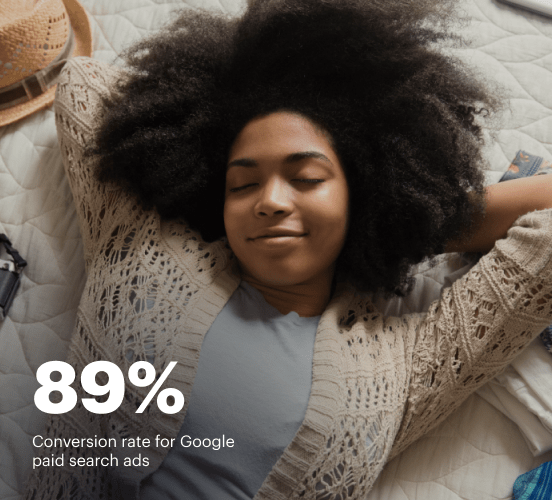How Canva vs. Mailchimp vs. Instapage stack up against each other
Compare Instapage with Canva and Mailchimp to create high-converting landing pages. With personalization, optimization, and collaboration tools, Instapage helps you deliver experiences that drive results.
Get startedSee how Instapage stacks up against the competition
| Feature | Instapage | Other builders |
| Drag-and-Drop Tools | ||
| Conversion-optimized templates | ||
| Manual and AI-powered A/B Tests | ||
| AI content suggestions | ||
| Popups and sticky bars | ||
| Canvas and grid blocks | ||
| Reusable and global elements | ||
| Form and popup builders | ||
| Built-in Heatmaps | ||
| Central analytics dashboard | ||
| Ad-to-page personalization and collections | ||
| Contacts, lists, and email | ||
| Dedicated, full-service CRO experts | ||
| Enterprise-ready platform |
Leading the way in building high-performing landing pages





Why Instapage is the smarter choice for your campaigns
Get everything you need to build, scale, and optimize high-converting landing pages—without coding.
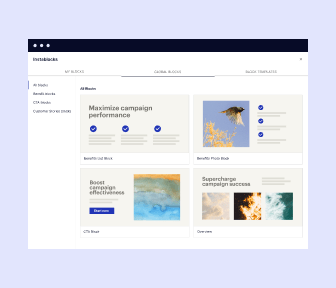
Easier page building without coding
Instapage offers a flexible and seamless page creation experience with a library of 500+ conversion-focused layouts, Instablocks®, a drag-and-drop builder, and AI content generation. With technologies like AMP and the Thor Render Engine®, you can create on-brand, mobile-responsive landing pages that load quickly and start converting during initial visitor clicks.
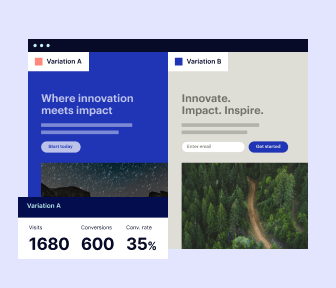
More insights — better results
Instapage lets you see in detail how each landing page experience and variation is performing so you can make targeted changes that boost page conversions. Use heatmaps for a better understanding of on-page activities, run A/B tests and AI-assisted experiments, and then track and evaluate results within robust analytics dashboards.
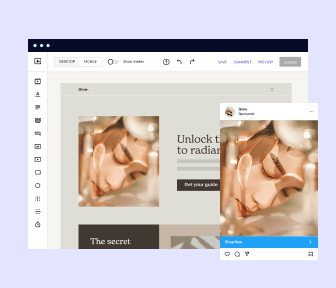
More personalized experiences
Instapage lets you quickly create high-performing landing pages tailored to each of your ad campaigns. Deliver personalized experiences for distinct audiences using dynamic text replacement. Effortlessly align specific advertisements to unique pages with AdMaps. Monitor audience-level metrics using our advanced data tools.
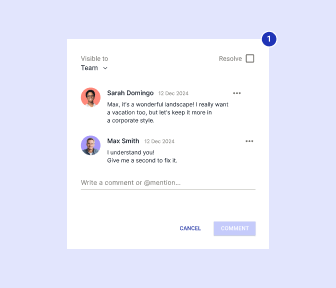
Built-in collaboration
Instapage collaboration capabilities bring your entire team together to speed up the process of landing page review, approval, and launch. No more frustrating and unnecessary revisions or edits scattered across emails. Provide instant feedback, conduct real-time page edits, and securely share your pages with outside stakeholders.
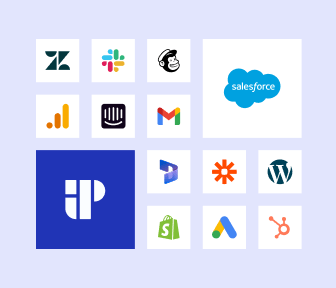
Free up time for your business
Invest time into business growth, not busy work. Launch landing pages faster with reusable forms and templates. Build once, reuse forever.
Explore all integrations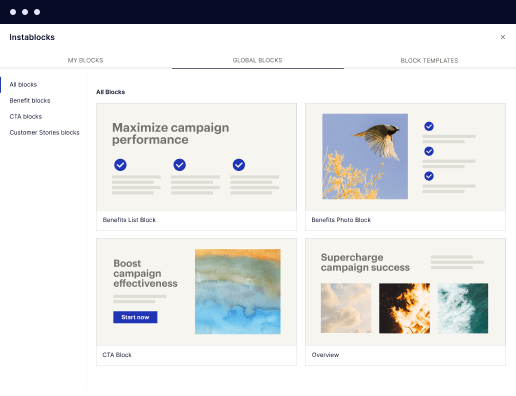
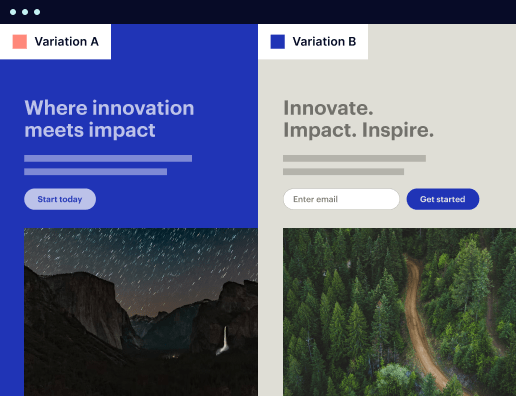
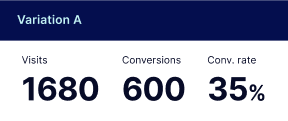
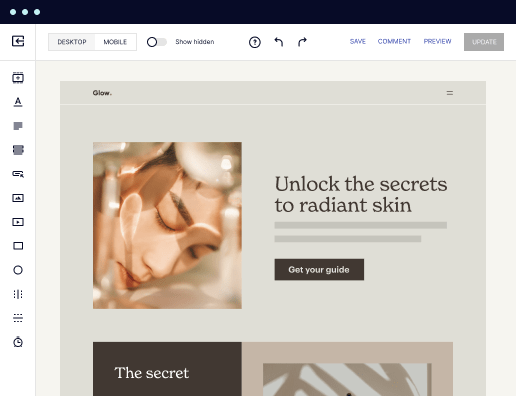

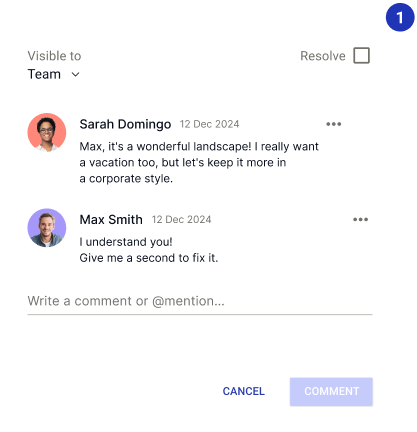
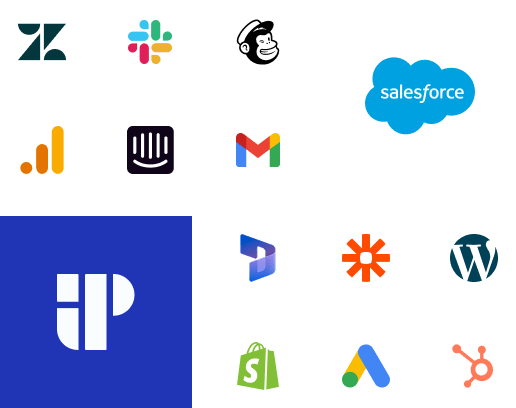
Easier page building without coding
Instapage offers a flexible and seamless page creation experience with a library of 500+ conversion-focused layouts, Instablocks®, a drag-and-drop builder, and AI content generation. With technologies like AMP and the Thor Render Engine®, you can create on-brand, mobile-responsive landing pages that load quickly and start converting during initial visitor clicks.
More insights — better results
Instapage lets you see in detail how each landing page experience and variation is performing so you can make targeted changes that boost page conversions. Use heatmaps for a better understanding of on-page activities, run A/B tests and AI-assisted experiments, and then track and evaluate results within robust analytics dashboards.
More personalized experiences
Instapage lets you quickly create high-performing landing pages tailored to each of your ad campaigns. Deliver personalized experiences for distinct audiences using dynamic text replacement. Effortlessly align specific advertisements to unique pages with AdMaps. Monitor audience-level metrics using our advanced data tools.
Built-in collaboration
Instapage collaboration capabilities bring your entire team together to speed up the process of landing page review, approval, and launch. No more frustrating and unnecessary revisions or edits scattered across emails. Provide instant feedback, conduct real-time page edits, and securely share your pages with outside stakeholders.
Free up time for your business
Invest time into business growth, not busy work. Launch landing pages faster with reusable forms and templates. Build once, reuse forever.
Explore all integrationsGet started with Instapage in a few steps
-
Create your Instapage account
Start with Instapage by signing up via Google or your email. You'll get access to a free 14-day trial to discover Instapage capabilities. Feel free to cancel anytime during the 14-day trial if you decide that our product is not suitable for your business. -
Build and personalize your page
Create your first landing page from scratch or choose a template from 500+ customizable layouts. Use the drag-and-drop builder to add page elements, fonts, and backgrounds, refine content with AI, or add custom HTML, Javascript, and CSS. -
Review and make edits
Collaborate on page designs and streamline review processes. Invite your team members and stakeholders to review, edit, and provide feedback on your landing page. Collaborate knowing your page is confidential and only accessible to authorized users. -
Publish and track page performance
Publish your page to a domain or custom URL. Connect your pages to the ads you've created and track page performance within the analytics dashboard, run A/B tests and AI experiments, analyze results, and continuously optimize your landing page to maintain high conversions.
Instapage vs. Canva vs. Mailchimp – Navigating Your Landing Page Options
Choosing the right landing page builder is like assembling the ultimate team for a marketing campaign. Each tool has its own powers, strengths, and unique features that can either make or break your online success. Imagine each platform as a superhero: Instapage is the specialist equipped with advanced customization tools, Canva brings in artistic flair to design stunning visuals, while Mailchimp stands out with its strong email marketing capabilities. This article aims to make your decision as engaging and straightforward as possible, offering a comprehensive comparison to clarify the strengths and weaknesses of each contender in the digital arena. Whether you are optimizing your landing pages for better conversions, designing eye-catching graphics, or integrating with email campaigns, knowing where each tool excels is essential. So, let's dive in and see who reigns supreme amongst these three heavyweights.
Meet the Competitors: A Quick Overview
In this heated marketing showdown, we bring together three contenders: Instapage, Canva, and Mailchimp, each carving its niche in the world of digital marketing solutions. Instapage has made its name as a dedicated landing page builder that focuses on improving conversion rates through its powerful customization features. It's your go-to platform when landing page experience is critical. Canva, on the other hand, is celebrated for its user-friendly design capabilities, making it the preferred choice for those who want visually stunning graphics and layouts without extensive design skills. Finally, we have Mailchimp, an established leader in email marketing, which also offers basic landing page functionalities as part of its broader suite of marketing tools. Each platform has its own strengths, and understanding these will help you determine which one aligns best with your specific needs.
Feature Showdown: Unpacking Key Offerings
Template Variety and User Experience Insights
When comparing features, the focus often turns to the variety of templates available and the ease of use each platform offers. Canva shines in this area with its extensive library of visually appealing templates, catering to a range of design needs from social media posts to flyers, and even landing pages. The interface is straightforward, making it easy for users of all skill levels to create beautiful designs without any prior experience. Mailchimp, while primarily an email marketing tool, offers a selection of landing page templates as part of its service, but many users find the choices somewhat limited compared to Canva and Instapage. Instapage stands out with its comprehensive set of templates tailored specifically for landing pages, along with an intuitive drag-and-drop editor that empowers users to customize their pages extensively. The focus here is on enhancing conversion rates through strategically designed layouts and content, making it a more specialized tool for marketers focused on driving specific actions.
Instapage: A Leader in Customization and Conversion
Instapage emphasizes its powerful suite of tools designed for customization and conversion optimization, setting itself apart in the landscape of landing page builders. With features like customizable templates, A/B testing, and detailed analytics, Instapage empowers marketers to not only create visually appealing pages but also refine them for peak performance. It's not just about creating a landing page; it's about crafting experiences that resonate with users, leading to enhanced brand trust and customer loyalty. Instapage's robust features support advanced functionalities such as dynamic text replacement, allowing marketers to tailor content for different audiences, increasing the relevance of their pages. Ultimately, this level of customization plays a vital role in improving conversion rates, making Instapage the ideal partner for marketers committed to achieving top-notch results.
Performance Matters: Speed and Efficiency
In the race for optimal performance, website speed is a critical factor. Imagine patiently waiting for your coffee to brew at a crowded café; the longer it takes, the more likely you are to lose interest and walk away. Similarly, slow-loading landing pages can lead to high bounce rates and lost conversions. When evaluating the speed and performance of our contenders, it’s essential to consider how swiftly each platform delivers its pages to users. A speedy site doesn’t just keep the audience engaged; it reflects professionalism and builds brand trust.
Benefits of Instapage: Swift and Smooth
- Instapage ensures fast page loads which enhances user experience.
- Instant A/B testing functionalities to evaluate different versions of pages.
- Optimized for mobile users, guaranteeing quick access to landing pages.
- High-performance infrastructure geared for quick editing and publishing.
Canva's Strengths in Speed and Performance
- Canva provides quick design functions that allow for effective graphic creation.
- Real-time collaboration features speed up the design process.
- Efficient exports ensure that images and layouts are promptly delivered.
Mailchimp’s Performance Highlights
- While Mailchimp's landing pages may load slower, its integration with email marketing can boost overall performance.
- It delivers reliable performance for those focused on email capture and follow-ups.
- The user interface operates smoothly, with minimal delays while performing regular tasks.
- Strong analytics provide insights into traffic and reader engagement for continual improvements.
Considering the performance of all three platforms, it's clear that while each provides valuable services, Instapage comes out on top due to its commitment to fast-loading, conversion-optimized landing pages. It's vital to choose a platform that balances speed with other essential features and functionalities.
Navigating Usability: Learning Curves Explored
Usability is a critical factor for any tool, especially for individuals with varying skill levels. All three platforms strive to offer user-friendly experiences; however, there are nuances in their learning curves. Instapage is designed with marketers in mind, means it offers in-depth tutorials and a straightforward interface for creating high-converting pages easily. Whether you are a newbie or a seasoned marketer, navigating the platform feels intuitive. Canva excels by providing users with a wealth of design resources, making the platform accessible and welcoming for those without design experience. The drag-and-drop functionality allows users to easily customize templates without a steep learning curve. On the other hand, Mailchimp may pose challenges for new users, especially with its multi-faceted functionalities involving email campaigns and landing pages. However, for those willing to invest the time in learning the system, it offers robust tools that can prove highly beneficial.
Customer Support: Assistance When You Need It
When it comes to customer support, think of each platform's resources as essential sidekicks ready to provide assistance. Instapage offers comprehensive support options, including live chat, email support, and a rich knowledge base with tutorials and articles. Their support staff is known for being responsive and helpful, ensuring that users can resolve issues quickly. Canva also provides strong support, featuring an extensive FAQ section and tutorial videos, although direct support options may be less robust as compared to Instapage. Mailchimp is equipped with customer service channels ranging from chat to email and offers a detailed help section, though some users report longer response times during high-traffic periods. Ultimately, the level of support can significantly enhance your experience with any platform, especially during critical campaigns.
Comparative Pricing: Evaluating Costs and Value
Pricing structures often play a pivotal role in the decision-making process. Instapage offers a range of pricing plans tailored to serious marketers, reflecting its premium features and capabilities aimed at boosting conversions. Although it might be on the higher end of the spectrum, the value it provides in terms of customization and performance can justify the investment for marketers focused on results. Canva features a freemium model, with many users able to design great projects without any costs, although premium features do come at a price. Meanwhile, Mailchimp features a subscription model based more on the email marketing component, with free options available for startups. Overall, there’s a solution for every budget, but your choice should align with your specific business needs.
To wrap things up, it's evident that each platform has its strengths and niches. While Instapage excels in customization, speed, and conversion optimization, Canva is perfect for visually-driven projects, and Mailchimp caters well to those prioritizing email marketing. Ultimately, your specific goals should dictate the right choice for you. So, whether you’re looking to optimize landing pages, create stunning visuals, or integrate email marketing, explore your options and consider trying Instapage with a free trial to understand firsthand its dynamic capabilities.

